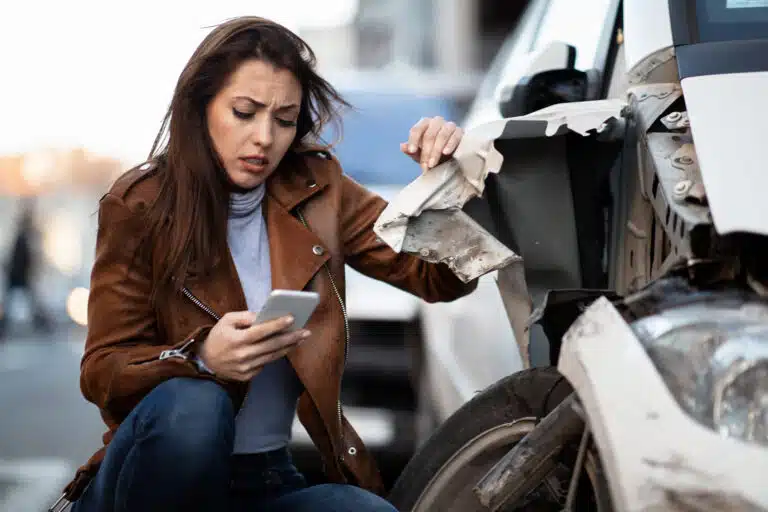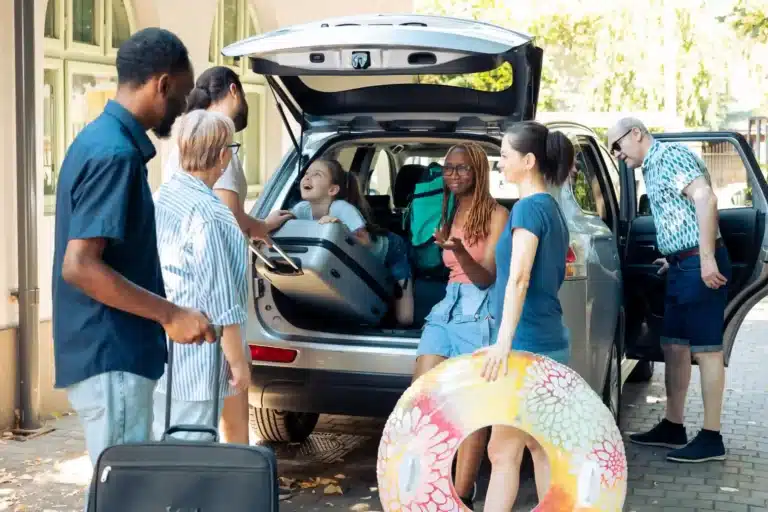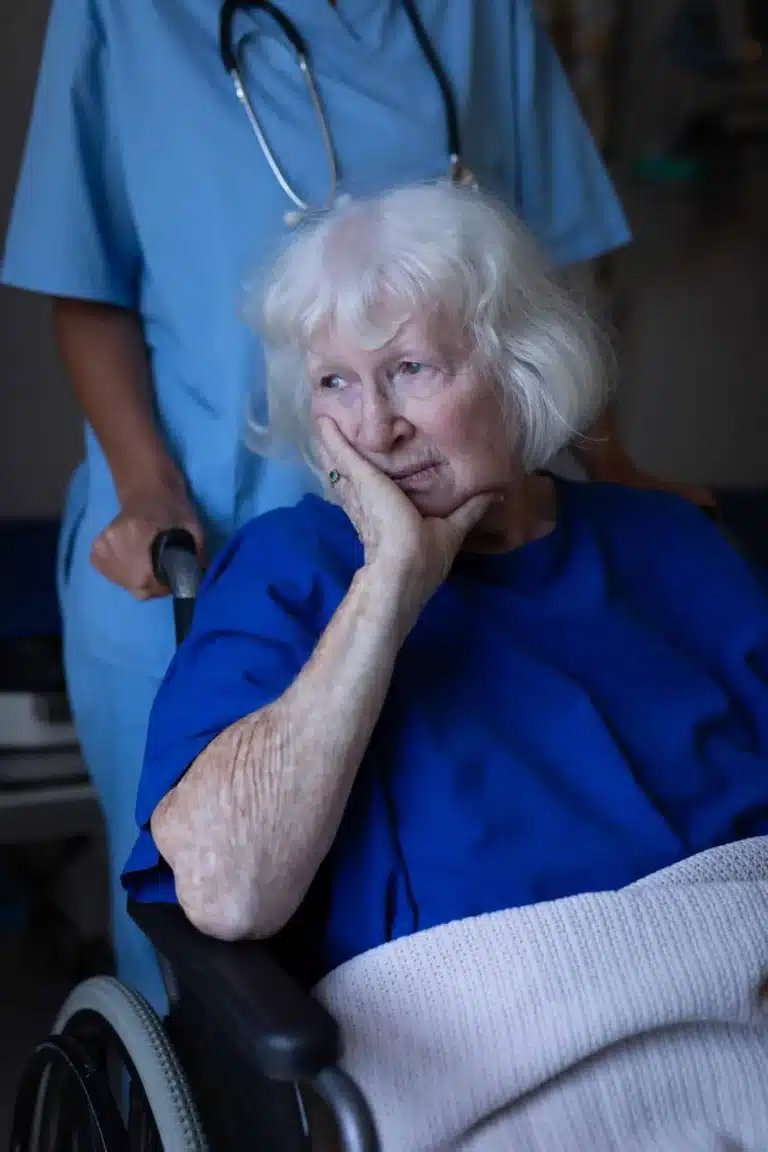Whether visiting a friend’s home, living in an apartment complex, shopping at a store, or parking in a parking lot, you have the right to be safe from dangerous conditions while on property belonging to someone else. You may have a premises liability case if you’ve been hurt on another person’s property due to their failure to protect visitors from hazards.
The experienced premises liability attorneys at Richmond Vona understand these cases inside and out. If you’ve been injured due to unsafe conditions in New York, we offer top-notch legal representation to protect your right to compensation. Call (716) 500-5678 or contact us online today to schedule your free consultation.
ON THIS PAGE
Duty of Care in Premises Liability
The foundation of premises liability law is the principle that property owners must keep guests, tenants, customers, and other lawful visitors on their property safe from unreasonable hazards. In other words, visitors have a right to be safe while on the premises of any given property, and the property owner is responsible for eliminating or warning about dangerous conditions.
To prove liability for personal injuries, you normally need to prove the defendant violated a duty to take reasonable care to avoid harming the plaintiff by their actions. In many jurisdictions, the duty of care owed in premises liability cases depends on whether the plaintiff was an “invitee, licensee, or trespasser.” New York has abandoned this approach. Instead, property owners owe a general duty:
“To use reasonable care to keep the premises in a reasonably safe condition for the protection of all persons whose presence is reasonably foreseeable.”
Types of Premises Liability Cases
Premises liability cases are as diverse as the properties on which they arise. No matter the circumstances of your case, our skilled attorneys are here to ensure you know your full legal rights and options.
"Slip and Fall" and "Trip and Fall" Accidents
Slip and fall accidents occur when a person loses their footing due to a lack of traction on their walking surface, often resulting in a backward fall. Common causes include:
- Wet floors caused by spills, mopping, or leaks without proper signage.
- Ice or snow accumulation on sidewalks, parking lots, or entryways.
- Slippery surfaces due to oil or grease.
- Recently waxed or polished floors with inadequate grip.
- Wet tiles in restrooms and locker rooms.
- Loose rugs or mats that slide when stepped on.
Trip and fall accidents occur when a person stumbles over an obstacle or uneven surface, often resulting in a forward fall. These incidents often involve:
- Uneven pavement, cracks in sidewalks, or potholes.
- Loose or frayed carpet edges.
- Extension cords or cables stretched across walkways.
- Cluttered aisles in stores or offices.
- Raised thresholds, floor transitions, or steps without clear visibility.
- Broken or unstable staircases.
- Objects left in walkways, such as boxes, tools, or debris.
Negligent Security
In negligent security premises liability cases, inadequate security leads to a plaintiff becoming the victim of crime, such as assault or robbery. Property owners are required to maintain reasonable security on their properties. This can include hiring security guards, installing surveillance equipment, and ensuring that locks on doors and windows are functional.
If a property owner is aware of the risk of criminal harm, such as if a property has a significant prior history of criminal incidents or suspicious activity has been reported, they should proactively address the situation to prevent harm to visitors.
Dog Bites
Dog bite premises liability cases occur when visitors are attacked by pets living on the property. Property owners are responsible for ensuring that visitors are safe when visiting their premises. This includes appropriately restraining animals, especially if they have a bite history or are otherwise known to be aggressive. Property owners should place warnings, install appropriate fencing, and take other necessary measures to protect others from aggressive pets.
Swimming Pool Accidents
Property owners can be liable for swimming pool accidents occurring on their property, such as injuries due to lack of fencing or appropriate supervision. Swimming pool premises liability claims often involve vulnerable children trespassing on property.
Defective or Dangerous Conditions
Defective or dangerous conditions, such as broken stairs, loose carpeting, and other poorly maintained aspects of a property that the owner should have been aware of and appropriately maintained can also lead to premises liability claims.
What Must Be Proven in a Premises Liability Claim?
A successful premises liability case requires demonstrating certain legal elements.
First, the owner must owe the visitor a duty of care. The owner must have breached that duty by failing to provide a safe environment, which caused the visitor’s injury. The visitor must have suffered compensable losses, typically an injury or property damage.
The most critical evidence in a premises liability case is proof that the accident was foreseeable, meaning the owner knew or should have known about the hazard. The question of foreseeability is closely related to whether the owner had notice of the risk.
“There are two types of notice under the law: actual notice and constructive notice.”
Actual Notice
As the name suggests, “actual notice” occurs when the property owner affirmatively knew about the dangerous condition that caused the plaintiff’s injury. Examples include:
- A store employee sees a spill on the floor but doesn’t clean it up.
- A tenant informs the landlord about broken stairs, but the landlord doesn’t repair it within a reasonable time.
- The owner is present and witnesses the hazardous condition but fails to address it.
Constructive Notice
“Constructive notice” arises when the property owner should have known about the hazardous condition, even if they claim they didn’t have direct knowledge. For example, if the hazard was present for a long time, the owner may have had constructive notice. Examples include:
- A spill on the floor that has been there for several hours.
- A broken railing that has been in disrepair for months.
- Ice accumulated on the steps of a building entrance that has not been salted or cleared.
Who Can Be Held Liable in a Premises Liability Case?
Premises liability may apply to various parties depending on property ownership and control over the area where the incident occurred. Property owners, landlords, property managers, tenants, cleaning contractors, and negligent security personnel may all be potentially liable for accidents occurring on a given property.
For example, a property owner might hire a property management company to operate their building. If the property management company receives complaints from tenants about poorly maintained stairs that create a trip hazard, they should fix it promptly. The company may be held liable in a premises liability claim resulting from accidents, even though it doesn’t own the property.
What To Do if You've Been Injured on Someone Else's Property
If you’ve been injured on someone else’s property, there are a few critical steps to protect your premises liability claim and maximize your likelihood of securing compensation.
1. Seek Medical Treatment
After a premises liability accident, the most important thing to do is seek immediate medical treatment. This not only keeps you safe but also establishes a treatment record of your injuries soon after the accident. Keep up with medical treatment and watch out for symptoms that develop later.
2. Document the Scene of the Accident
If possible, document the scene of the accident soon after it occurs. This includes taking photos and videos of the hazard that injured you and nearby surveillance cameras that may have captured your accident. Also gather witness contact information.
3. Establish a Paper Trail
If you contact the property owner or manager about dangerous conditions, keep records of conversations, especially those in which you report the hazard or accident. This includes text messages, emails, written reports, and maintenance requests. Evidence of the hazard before your injury can also help establish the length of time it existed.
4. Contact an Experienced Premises Liability Attorney
After an accident, consulting a personal injury attorney with premises liability experience is crucial. Our skilled attorneys can evaluate your case and determine your full legal options, as well as estimate your compensation, the time it will take to resolve your claim, and whether it will be necessary to take your premises liability case to court. Working with an attorney is the best way to protect your rights and interests after an accident.
Let Richmond Vona Handle Your Premises Liability Claim
If you’ve been injured due to unsafe property conditions, the New York premises liability attorneys at Richmond Vona can fight for full and fair compensation. The sooner you reach out, the sooner we can start gathering evidence before it disappears and building a strong case on your behalf. Call (716) 500-5678 or contact us online today to schedule your free legal consultation.



